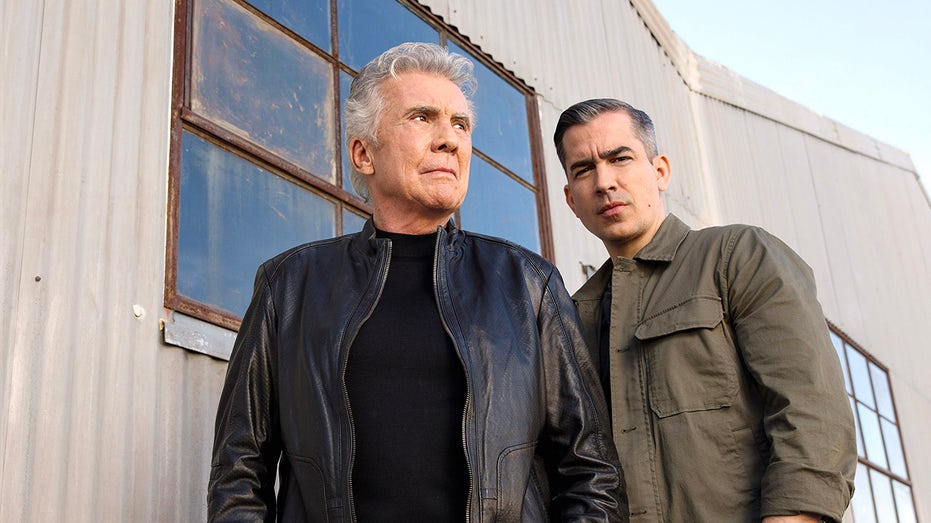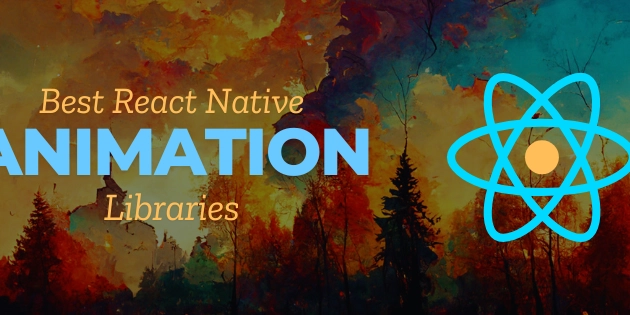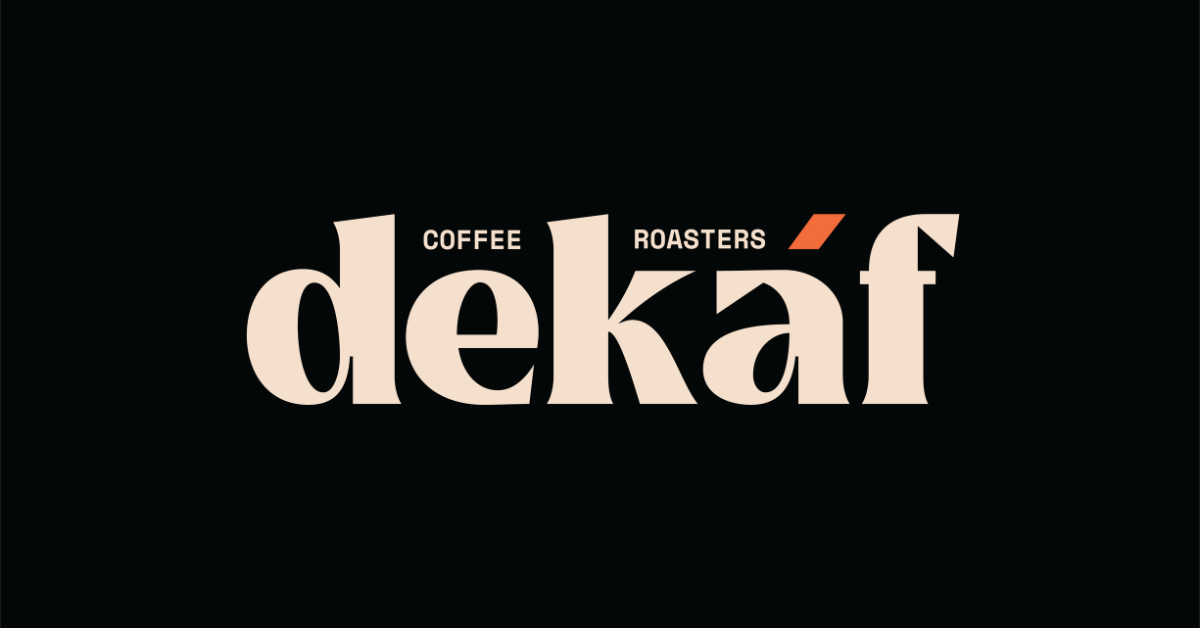Trump’s Bad Poker Hand
Plus: an interview with Ontario Premier Doug Ford

Subscribe here: Apple Podcasts | Spotify | YouTube
In this episode of The David Frum Show, David discusses how the Trump administration is in for a stark reality check due to its trade policies. David also debunks the claims of a painless economic transition promised by President Donald Trump and makes the point that the administration is not only bluffing and mismanaging fiscal and trade policies, but also misleading the public with promises of easy success.
Then, David is joined by the premier of Ontario, Doug Ford, to discuss Canadians’ reactions to the sudden economic and rhetorical attacks from their once-trusted American neighbors.
After the interview, David answers listener questions about the Trump base, the media techniques of fascists, and the hidden gift of Trumpism.
The following is a transcript of the episode:
David Frum: Hello, and welcome back to The David Frum Show. I’m David Frum, a staff writer at The Atlantic, and I’m grateful that you would join us again this second week of the program.
This week, my guest will be Ontario Premier Doug Ford. Now, I should make clear, if anyone doesn’t know it: I, too, am a Canadian and an Ontarian by birth, and I still spend a lot of time there.
I’m going to be speaking to the premier about the sense of shock and dismay that Canadians have felt about Donald Trump’s threats, not only to the trade arrangement between Canada and the United States, but his demands that Canada be annexed to the United States.
You know, the Trump people, when they’re trying to justify the economic policy that sent world financial markets into such chaos over the past weeks, they try to present this as some kind of confrontation with China alone, because they don’t like to admit to Americans that they are waging a trade war against the entire planet. This is not an anti-China campaign; this is an anti-everybody campaign. And it’s a campaign in which America has almost literally no allies, except maybe El Salvador.
The trade war began with attacks on Canada, supposedly and historically America’s closest neighbor and ally. You would think if you were trying to build an anti-China coalition, you would start by consolidating the North American heartland, especially the U.S.-Canada relationship. That’s exactly the opposite of what has happened.
I’ll be talking to the premier about that, how Canadians feel about it—not so much the facts and figures of the relationship, enormous as it is, but what it has been like for Canadians to be on the receiving end of threats of annexation, threats of violence, and this unrelenting campaign of tariffs and harassment, which has not been paused. The tariffs against China paused and unpaused. But those against Canada have remained consistently in place from the very beginning of the Trump administration. It’s bizarre. It’s shocking. It’s upsetting. And that’s what we’re going to talk about this week on The David Frum Show.
After the interview, I will be discussing and answering some reader questions. But first, some opening thoughts on the events of the past week.
[Music]
Frum: When Donald Trump and those around him want to demean or dismiss some opponent, some critic, they sometimes use the phrase, He doesn’t have the cards. They’ve said that about Volodymyr Zelensky and the Ukrainian people’s resistance to Russian aggression. They’ve said it about Canada and other trading partners.
The implication is that the other person is too weak, too insignificant to be bothered to be worthy of respect. But there’s another implication, too, which is that the United States and the Trump administration does have the cards, is so mighty and fearsome that others must give way.
Now, the United States is obviously a very powerful nation with a lot of sources of command and control. But it is important to understand that, in fact, Donald Trump doesn’t have the cards that he thinks he does, and that’s one of the reasons that this campaign of economic aggression he’s launched—not against China but against the whole planet, every country just about, almost every trading nation—is coming amiss and will likely end in failure, and even disaster.
Let’s just take Donald Trump seriously for a moment. He doesn’t deserve it, but let’s just, for our own sakes, do it: supposing a president of the United States came to office and said, You know what? My top priority is going to be reshoring manufacturing in the United States. I personally don’t agree that this should be anybody’s top priority, but let’s suppose it were a president’s top priority: reshoring manufacturing. That’s what Donald Trump says he wants to do. How would you go about it?
Well, first you admit to yourself, if to no one else, that you are proposing a very ambitious and expensive task, one that will involve a lot of dislocation. So you’d face up to that. You would try to build some kind of political consensus in favor of the bumpy, difficult path you were proposing for the nation. You would maximize your friends at home. You would reach out to other parties. You would not behave in an arrogant way that had a lot of people hoping for your failure, and you would not start committing all kinds of other offenses—and even crimes—that put you in all kinds of precarious positions, where anything went wrong, and your whole program would come a cropper.
You would understand you were doing something that was not easy, was not going to be fast, was going to be costly, was going to impose significant hardship on many people. You’d work with allies. You’d build a large coalition because even if as you’re shrinking your supply chains to move things away from China, you’re still going to need various kinds of inputs from other countries—raw materials, if nothing else. And you’d want to make sure that as many countries as possible were sympathetic to what you were doing, rather than wishing that you would fail and fearing your aggression. You certainly wouldn’t open campaigns of territorial aggression against neighbors and allies. You wouldn’t say, We’re going to annex Greenland from Denmark, and we’re going to try to conquer Canada and make it a 51st state. You wouldn’t do any of those things.
You would also understand the relationship between your financial program and your economic program. Now, this is a little technical, but it’s really important to grasp. The reason the United States has such a big trade deficit is exactly and precisely because the United States imports so much capital from other countries. The current account and the capital account—to give them their technical names—have to move together.
So one reason the United States has had such an expansion of its trade deficit in recent years is, first, that the United States is importing so much capital in the form of private investment. People are buying into American companies, which is a good thing. But it’s also because the United States has run huge budget deficits. So foreigners buy a lot of American debt because there’s a lot of American debt to buy.
A first step—and an indispensable step—towards shrinking your trade deficit is to shrink your budget deficit. So you would have a fiscal plan that worked in parallel to your trade plan, your economic plan, whereas instead of, as Donald Trump has done, exactly the opposite. His plan is to make the deficit bigger on a fantasy that with enough tariffs, he can make the trade deficit smaller. And that’s not going to work.
You would level with people. You would not promise people quick and easy success. The hardships that have come, and are to come, are going to arrive and are arriving as a total surprise to Americans. They were promised that this was going to be quick and easy. People in the Trump administration are still promising that the stock market will go up any day soon, not understanding: You know what? Reshoring all this manufacturing, it’s going to dislocate a lot of arrangements. A lot of businesses are going to close. A lot of people are going to lose their jobs.
Maybe they’ll find new ones. Conceivably—I don’t believe it, but conceivably—the new ones will be better paid. Probably not. But if you think it’s sort of more manly for Americans to work with their hands in factories than to work in offices or in service jobs, if you think that that is going to fortify the character of the country and the economic sacrifice is worth it, don’t go promising people that they’re going to be better off, because it’s not true. And they will notice, and they will be mad, and they will notice soon.
Don’t also say that your goal here is the strengthening of the American family. One of the things we know about families is they tend to come apart in times of economic distress, especially the non-college educated. During a recession, rates of divorce go up; rates of childbirth go down. If those are your top priorities, understand that they conflict with the other top priority of reorganizing the entire American economy.
Don’t also make a lot of appeals to freedom, because a top-down reorganization of the American economy is many things, but a free-market project it is not. It’s an act of state control, of state assertion, of central planning. Someone has grimly joked of central planning without a plan. But there’s a notion, there’s a concept that the people at the top—the people with authority—think that a certain way of organizing the economy would be better than other ways, and they’re going to use the power of the state to enforce their vision.
So you have to drop all this talk about economic freedom, because that’s not what we’re doing. Economic freedom belongs to those who are free traders. With the reorientation of the economy toward manufacturing, you’re committing to the tariff regime, which is highly intrusive. You’re committing to probably various kinds of retraining programs. You’re committing to state subsidies to, at a minimum, to buy off the farmers, but state subsidies in other industries too.
And ultimately, if you’re not going to have a shrunken budget deficit and you’re going to do the tariffs and you’re going to try to reshore manufacturing, sooner or later, you’re going to discover yourself needing some kind of capital or exchange control to control the flow of money in and out of your country.
So this is a big, old-fashioned, wartime-economy project, not at all a free-market one. And you’d better acknowledge that to yourself. Instead, what has happened is that Trump has presented this in a way that is so false, so deceptive, that the story is going to unravel faster than he can deliver any conceivable benefit. Never mind net benefit—any benefit at all.
So what he’s going to discover is he’s doing this all with bluff. He doesn’t have the cards. His promise of easy, cheap success, well, it comes naturally to him because he’s kind of a flimflam artist, and all his life, he has bilked people who have trusted him. In this case, he’s trying to bilk a whole nation.
I don’t worry about this, because, as I say, I don’t wish any of this project well. I think the whole project is ill-conceived, even if it were an honest project. And it’s not honest. But I think he has begun this project by lying even to himself about how easy it’s going to be, how fast it’s going to be, how remunerative it’s going to be. And I think what we all smell coming from this administration in the light of the unraveling of self-deception is the smell of panic.
And this is the whole thing. This is the thing. I think that the whole world—and especially the Chinese, who are supposedly the targets of the Trump program—are smelling panic. They are smelling fear. They’re smelling imminent defeat.
You know, the United States was sold this project as a way of reaffirming American power and greatness. In fact, what we are witnessing is not just a crisis of the American economy but a crisis of American power. All kinds of other resources of the American state—the good name, the credibility, the alliance system—all these things are also in danger right now. And we are going to find ourselves, at the end of this Trump program, which may be coming faster than anyone believes—this whole thing may collapse quite quickly—but when it does collapse, it’s going to be hard to put together a second plan. It’s going to be hard to persuade countries that have been targeted by the tariffs, the countries that have been threatened with aggression, the countries that have been abandoned that the United States has repented and will do better.
And I’m not thinking here just about close American friends but about a country like Vietnam, which is a historic enemy of China—which welcomed the opening of an economic tie to the United States as a way to both enrich themselves and also to give them some leverage against their powerful neighbor. They are now thinking, As nasty as the Chinese are, they may be more reliable. And we are seeing a revival of high-level visits between Vietnam and China in a way that is going to be very hard to undo.
Authoritarian states like Vietnam have a lot of policy continuity. Once they settle on something—it comes out of a big bureaucratic process of decision, but once they settle on it—that becomes the plan. And if they’ve become convinced that the United States under Donald Trump—that the United States, generally—is not a reliable partner, that’s not something they’re going to change their mind about when the United States says, Oops. Sorry it didn’t work out. We didn’t hit the Dow 50,000 target that Peter Navarro promised. We’re rethinking this. We’re going to try something else. We’ve got to pause. We’ve got an unpause, then we’re pausing again and unpausing again. Through all of this, the United States is going to find itself in worse and worse shape.
And now my interview with Ontario Premier Doug Ford. After that, I’ll be answering questions from viewers and listeners. Please remember to like and subscribe to The David Frum Show.
But first a quick break.
[Break]
Frum: Premier Ford, welcome.
Doug Ford: Well, thanks for having me on, David.
Frum: I should mention I was born in Ontario. I have a house in Ontario. I pay property taxes in Ontario, but I don’t vote in Ontario, so you get the best of all possible worlds from me.
Ford: (Laughs.) Well, that’s great. I can’t stand taxes. Never raised a tax ever.
Frum: This is where I want to start. So you’ve been working very hard on American television—
Ford: Yes.
Frum: —talking about the relationship between Canada and the United States, between Ontario and the neighboring states, the facts, the figures, the enormous size of this relationship. I want to move away from that meat-and-potatoes, facts-and-figures approach to ask a sort of question I think Americans may not understand and would appreciate your insight into.
A lot of Americans, even the people who are not sympathetic to what President Trump is doing, treat his comments about Canada as kind of a joke: Annexing the 51st state—it’s a troll. It’s a joke. I don’t think they understand the impact that this is having, that this kind of talk has on Canadians. So could you just [say], as someone who comes from a right-of-center background—not a tax raiser, not a big-government guy—as someone who comes from the same part of the world, basically, as the Trump voters come from, how all of this lands when Canadians and Ontarians hear it?
Ford: Well, what it is, David, we’ve always thought ourselves part of the family, and it’s been that way for, oh, generations. And I think people were shocked. They were disappointed—if I could say the word hurt—because Canadians love Americans. They absolutely love them. They spend a lot of time in the U.S. And Americans love Canadians. I’ve talked to so many hardcore Trump supporters who are saying, Yeah, I would do anything for Trump, but I don’t like the way he’s treating our—one guy said—little brother. And that’s the way we look upon it too.
I spent 20 years of my life in the U.S., and I love the U.S. I love the American people. I traveled pretty well to almost every state numerous times, and I just believe we’re stronger together. I believe in the “Am-Can fortress,” the American-Canadian fortress. Put a ring around it. No one can touch us.
We have all the natural resources, the energy, everything that the U.S. needs, and we need the U.S. We’re the No. 1 customer, as I call it. We’re their No. 1 customer, so vice versa. And we just need to work together. The threat is not Canada; it’s China. You have to keep an eye on China. I’ve been saying it for years now, and it’s coming to fruition.
Frum: I think one of the things that baffles a lot of people in the Canadian business community especially is: It’s a complex relationship. There are always chafing points. Everybody understands that lumber, dairy—there have been issues that go back a long time. What I hear from people in the business world is that Trump people aren’t saying anything you can even say yes to. The grievances seem so imaginary. Everyone knows the drugs don’t flow from Canada to the United States. They flow from the United States to Canada. The guns flow from the United States to Canada. Flows of manufacturers go from the United States to Canada. Canada sends energy, and there’s a trade back-and-forth in services. So they don’t hear it. Like, even if they wanted to say yes, they can’t, because the grievances don’t seem real.
Ford: Well, that’s because they aren’t real. It’s very, very simple. And, you know, it’s the uncertainty that President Trump has put not just on Canada, on the entire world. You know, I always say you have to take a page out of Ronald Reagan’s book back in 1988, on the free-trade deal. And, you know, protectionism does not work. It doesn’t work anywhere in the world. It won’t work between Canada and the U.S. The supply chain is so integrated.
Everyone’s heard about the auto parts going back and forth six, seven, eight times before they get assembled in a plant in Ontario or a plant in the U.S., be it Michigan or any other auto plant. I always say—you know, the Auto Pact’s been around since 1965—and you can’t unscramble an egg. You have to make the omelet larger. And that’s the auto sector. But there are so many other sectors that the supply chain is so integrated. You just can’t flip on a switch and turn it off.
Frum: Well, you mentioned the Auto Pact. I think a lot of Americans don’t understand when they hear President Trump say and his surrogates say, We want Canada to sign some great new trade deal, that Canadian-U.S. trade has been wrapped in deals. They go back to the 1950s for defense, to the 1960s for autos, the first Canada-U.S. Free Trade Agreement to the ’80s, NAFTA update in the ’90s, the Trump version of NAFTA in the 2010s.
And what Trump has been doing is saying, All those signatures don’t mean anything. We want another set of signatures. And one of the questions I think you must have and Canadians must have is, well, if the last set of signatures don’t mean anything, why do you want new signatures?
Ford: And that’s what people have been saying, David. You know, President Trump made the last deal. I was part of that deal with Secretary [Robert] Lighthizer. And President Trump said it was the greatest deal ever. I guess it’s not the greatest deal ever anymore. So I’m not too sure what he wants to do or where he wants to go, but we’re just stronger together. With all the threats around the world, we need to stick together.
When China’s cutting the U.S. off of critical minerals for their military use, we have all the critical minerals. Ontario has more critical minerals than anywhere in the world. We want to ship them down to our closest friend and ally to support them. For instance, nickel: 50 percent of the high-grade nickel the U.S. uses comes from Sudbury. And I emphasize high-grade nickel. There’s a difference. They use it in their military, use it in their aerospace, in their manufacturing. Not to mention the aluminum and the steel and other critical minerals that I could list. And who better to give it to than our closest friends?
Frum: I understand you often talk to Secretary of Commerce [Howard] Lutnick. What are those conversations like, without asking you to say anything you shouldn’t say? Does he place the call? Do you place the call? How do you greet each other? Is it cordial? What happens on those calls?
Ford: Well, it’s always cordial. He’s a very, very bright individual. He understands the markets, and that’s why it’s mind-boggling to so many people, elected officials, private-sector folks. He’s a smart guy, and the market’s speaking. And when you see the market tumbling, it’s not about Wall Street losing money; it’s about Main Street losing money.
The mom and pops that are out there that have money in pension funds—and we have a lot of pension funds in Toronto, probably one of the largest group of pension funds—they invest everywhere in the world, and they invest heavily into the U.S. So when their pension fund drops $2 billion or $3 billion over a three-day period, that’s concerning.
It’s concerning to people that want to invest around the world. They put that on hold. We’re going to see inflation when you’re targeting tariffs—which, by the way, I support all the tariffs against China, but there’s a way of handling it.
Frum: Do you ever tell Secretary Lutnick that he could make everybody billions and billions of dollars if he could just keep his yap shut for 48 hours?
Ford: (Laughs.) Well, I never get personal with the president, never get personal with the secretary. But I’m not too sure if they realize the impact on the entire world when one man speaks; it can shift everything. So they have to be cognitive of every word that comes out of their mouth. It’s just so, so important for the U.S., for the citizens, to make sure that we continue thriving and prospering. And that’s what would happen if we made this Am-Can fortress.
Frum: Can you talk a little bit about the 51st-state troll?
Ford: Yes.
Frum: Because Canada and the United States have a relationship that is so integrated, everything from migratory birds and the Great Lakes. And trucks break down on the bridges, and if they break down on this part of the bridge, it’s an American traffic problem. If they break down on this part of the bridge, it’s a Canadian traffic problem. Police coordination. Your relationship with your counterparts in Lansing and Albany; you probably work with them every single day. And yet they are two countries with different cultures and histories. Talk a little bit about how it feels to Canadians when Americans say, Your country doesn’t matter, even though we have this great cooperative relationship.
Ford: Well, what I did say to Secretary Lutnick, and I’ll say it publicly: The difference between Americans right now—and I have a tremendous amount of friends and contacts in the U.S.—they’re just kind of going on their way. They’ve woken up a little bit over the last few weeks. But 40 million Canadians are at a fever pitch right now. They’re willing to sacrifice. They’re patriotic, like patriotism I’ve never seen. We always say how Canadians are so polite. Well, they’re at a fever pitch right now and willing to do anything and sacrifice anything to protect their sovereignty. And they’re passionate. Again, I’ve never seen the patriotism like I’ve seen over the last few months.
Frum: You just won an election on these issues.
Ford: Yes.
Frum: And there’s now another election at the federal level being fought, where the Trump issue is central.
Ford: Yes.
Frum: Do you think that the Trump people understand that they’re remaking Canadian politics in ways that may surprise them, in ways potentially they may not like, because of their blundering interventions into Canadian life?
Ford: I think they’re playing a huge impact on Canadian politics. They played a huge impact on my election as running for a third mandate, and I talked about the tariffs. That was the most important issue on all our polling. Tariffs were No. 1 because that affects their lives. You know, I always say, the foundation of our health-care system, education, our infrastructure, our business—the foundation is your economy. That’s what keeps everything going. And when there’s an attack on your economy, that affects every other sector here in Canada, but it also affects every sector in the U.S. as well.
Frum: Let me end by asking you about the way forward, the way back to normality. Prime Minister [Mark] Carney, who may or may not be prime minister next month, he faces an election at the end of April. Prime Minister Carney is sort of an interim prime minister. He said nothing will ever be the same, and right now it is very hard to see a way back to normal. Do you see a way back? What would that look like, starting from where we are, with the intense feeling in Canada against what has been said about Canada?
Ford: Well, I always look at the glass being half full. I think there’s an opportunity to drop these tariffs, build on our strengths. We can be the two strongest, wealthiest, most prosperous countries in the world. If we get the [Keystone] XL pipeline, start heading south. We need to build pipelines east, west, and north as well. We need to make sure that we get the critical minerals out of the ground and sell them to our friends south of the border. And if they’re at capacity, then we ship them around the world to our allies, not our foes. We want to send them to our friends and make Canada stronger and make the U.S. stronger and more secure. That’s what we need to do. And we’re consumer gluttons in Canada. We hit way above our weight for 40 million people.
Frum: Let me focus that question about the way back a little bit more. In our earlier lives, I think we can both remember a time when Canada was a much more state-dominated economy, much more protectionist. There was a government-owned oil company, government-owned other services in places the government had no business being. There was a lot of mistrust of American investment. There was foreign investment-review acts. We remember the first Trudeau government’s national-energy policy, where they tried to create a kind of isolated Canadian energy market.
You know, from the ’60s to the ’80s, Canada was an inward-looking, isolationist, protectionist, state-dominated economy, in a way that changed in the 1980s with the free-trade agreement, the Mulroney government, and governments like yours, Ralph Klein in Alberta. Prime Minister Carney sometimes sounds like he’s talking about returning to that old way, where there would be a made-in-Canada car, and that the price of Trump to Canada is not just what he’s doing to Canada but the way he’s changing Canada to make Canada more inward.
Do you worry about that? Do you think that’s a resistible trend? Do you think that’s a fight that can be won in the face of the kind of pressure on Canada today?
Ford: Well, David, I totally disagree with that, anything to do with protectionism. Do I believe in onshoring? I’ll give you a couple examples.
Aluminum cans: 65 percent of the aluminum the U.S. needs comes from Quebec. So we ship down the aluminum. The two big breweries and the two big beverage companies, they print it, convert it, and ship it back up. They get hit 25 percent on the way down, 25 percent on the way back. It drives up the cost to the consumer. And I have to ask, there’s a billion-dollar industry. Why are we not making cans here in Ontario? That’s one area.
I found out the other day, we have three big steel plants—Stelco, Dofasco, and Algoma—and we don’t make steel beams here. And we have more cranes in the sky in Toronto than New York, Chicago, Dallas, Houston, L.A., and they even threw in Honolulu combined. So we need to build steel beams.
The last one, I’ll give you an example. We ship wheat down to the U.S., and they make cereal. I found out that we don’t even have a cereal manufacturer here. We used to have Kellogg. But these are simple areas that I believe in onshoring to make sure that we have a supply of cans at a lower—
Frum: American spaghetti is all made from Canadian wheat, or almost all.
Ford: Yeah, that’s right. Yeah. And then some of the packaging and spaghetti comes up to Canada, which I have no problem with.
It was like [during] the pandemic, when President Trump cut us off from the N95 masks, well, we stood up an industry in two months. And we’ll never rely on anyone in that area again. We’re making our own N95 masks, our gowns, everything else here. We can manufacture anything in Canada, absolutely anything.
Frum: You have your hand on the on-off electricity switch flowing south to the United States?
Ford: Yeah, I want to ship them more electricity. You know, we are sharing the technology of the small modular reactors. We’re leaders in the G7 on the SMRs.
And I just had Governor [Spencer] Cox here from Utah, a Republican governor. What a gentleman. The first thing we did, we brought them up to Darlington, where we’re making the small modular reactors. We’re working with U.S. companies—General Electric, Tennessee Valley Authority, and Hitachi’s in there as well—but we’re saying, Here. We’re going to share this technology.
They need energy, the U.S. We have the energy, we have the technology, and we’re sharing it with them. We have orders for over $100 billion from Europe for the small modular reactors. And anyone who doesn’t understand SMR—it can be any size, but let’s just use it as approximately the size of a Walmart. It can power a town of 400,000 people. And it’s convenient. It’s clean, green, reliable, affordable energy. That’s the way of the future.
Frum: Thank you so much for making time for us today.
Ford: Thanks, David. And I just want to tell the Americans, we love you. I love the Americans, and may God bless the U.S., and may God bless Canada. And let’s get through this and get this deal done.
Frum: Thank you so much. Bye-bye.
[Break]
Frum: Thank you to Premier Doug Ford for that candid, powerful interview.
As mentioned, I also live in Ontario. I have a house there, and I’ve witnessed myself what the premier has described. This surge of hurt and dismay and, above all, surprise among Canadians at the reaction to Canada in the Trump administration. What did Canada do to bring all of this hatred and desire for annexation on? It’s very puzzling and very upsetting, and Premier Ford has been someone who’s given powerful voice to those feelings.
As mentioned, we’re going to try to experiment with viewer and listener interaction on this program. It’s something that has been lost on the internet—the collapse of comment sections from the early internet, the demise of Twitter as any kind of useful platform of exchange. I’m going to try to restore some interactivity here. We’ll see how it goes. Thanks to everyone who sent a question. We’ve selected three. I hope listeners and viewers will send more questions to producer@thedavidfrumshow.com. And here are the three for this week.
The first comes from Paul in the Bay Area, and he asks, “Do you think Trump supporters are having buyer’s remorse?”
Now, the Trump base is famously solid, powerful, even kind of threatening. Many in Congress on the Republican side hesitate to vote their consciences on things like free trade, because they’re so terrified of what Trump supporters inside the party might do. But elections aren’t lost from the base. Elections are lost at the fringe. Remember: 1932, the Great Depression. Americans are going hungry. Transient camps on the edge of every American city. Herbert Hoover still won 38 percent of the vote in 1932. You don’t lose your base; that’s why it’s called the base. What you lose is the fringe and the edge. And there are a lot of signs that President Trump is in deep trouble.
During his first term, his personal approval was never that great. Americans saw him for what he was, a bully—or maybe not wholly for what he was, but they saw a lot of what he was—a bully, loudmouth, kind of a thug. They didn’t like it, but they did enjoy the economy of 2017, 2018, and 2019. They didn’t care whether he’d done it himself or whether he’d inherited it from Barack Obama. Those were good times, and people appreciated it until the COVID crash, for which they largely didn’t blame Trump. They saw that as some external event that maybe he didn’t manage as well as he could have, but it wasn’t his fault.
Now there’s a lot of data that shows Trump’s economic numbers are heading south, and that’s before significant layoffs have begun. Thus far, the crisis that Trump started entirely on his own has been a financial-market event. And it’s like the gathering of a storm, not the storm itself. The storm is coming, and if it expresses itself in layoffs, in home foreclosures, I think you’ll see a big reaction to that.
You already hear nervousness from Republican members of Congress about the 2026 elections. If those elections are allowed to proceed in a free and fair way—which is, unfortunately, not the certainty that it ought to be—I think there’s going to be a price to pay for the mistakes of the past months and the further mistakes that seem to be coming.
So I don’t know that you’ll ever get, Paul, the kind of reaction from the pro-Trump talkers on many platforms to say, We lied to you. We knew we were lying. The whole thing was a disaster. We’re so sorry. We want to make some kind of repentance. I don’t think those folks are ever going to apologize in the way that perhaps you’d wish. But will there be enough cracks in the Trump coalition to weaken the position of the Trump presidency leading to the midterms? And will there be some kind of correction in the midterms if they’re allowed to happen? I think the answer to that is pretty strongly yes.
A question from Hans. In last week’s program, I made a reference to the way in which the far right of today has become a very adept user of new social media. And Hans asked, “I’ve been thinking for years that there was a comparison to be made between fascist authoritarian use of radio and film in the 1920s and 1930s, and the right’s use of social media today.” And he wanted me to develop this thought some more.
It’s a big mistake to assume that just because people have reactionary social views, that they will necessarily be backward in their use of technology. In fact, quite the contrary, often because they’re so alienated from the society of the present, they’re hunting in all kinds of unlooked-for places in ways that people who are more satisfied with society don’t.
For example, cable TV has, obviously, audience problems, and that’s a much-discussed fact. One of the things that the new media have discovered is there is a huge, untapped audience for conspiratorial anti-Semitism, and people who speak to this can build huge online followings. Many of the most successful podcasters of today have discovered conspiratorial anti-Semitism as a great resource, and they’re building audiences larger than CNN, MSNBC, even Fox.
Why? Cable news is a little more old-fashioned that way, thank goodness, and is saying, You know, even though there’s a big profit to be made, we’re not going there. But new media has said, We are looking for every kind of new opportunity, and if conspiratorial anti-Semitism is the wave of the future, that’s for us.
And so you see this flourishing of the worst kind of ideas in the most advanced places on the newest platforms. I think if we’re going to hold society onto a better path, if we’re going to hold media and public discussion onto a better path, we’re going to have to follow the worst people in society onto the newest platforms and to communicate in the newest ways. And that’s one of the things I’m trying to do here on this platform, to say, You know what? We can use the new media and still say conspiratorial anti-Semitism is for crackpots, cranks, and vicious people of all other kinds.
Question from Michael: “In your book Trumpocracy, you highlighted some of the hidden gifts of the Trump presidency. Eight years later, are we any close to unwrapping and enjoying the fruits of those gifts, or are we at risk of squandering them forever?”
So this is a reference to an observation I made in a long-ago book about there being potential benefits. One of the things that is a gift of Trump, and maybe not a gift any of us want, is: Trump’s second term brings to Americans the gift of humility. I think a lot of Americans have an assumption that things that happen in other places at other periods in history could never happen here. A famous book about American fascism bears the title It Can’t Happen Here.
I think Donald Trump is showing that Americans belong to the same human race as the Germans, the Italians, and the Japanese. We are not special creatures of God. We are not immune to the vices of humanity. America has had, on the whole, a more fortunate history than other countries—not in every way a perfect history, but a more fortunate history. And so political extremism has tended not to get the purchase in the United States than it has in less fortunate countries.
But there is no innate American immunity to extremism. And there is no guarantee that America must stay a democracy forever. It is really up to all of us, and Donald Trump has taught us that lesson—is teaching us that lesson. If we want to keep what has been great and good about America, we’re going to have to work over the next years the way Americans have seldom worked before in their political history.
Thank you so much for listening to the program. We’ll be back next week with more. I hope you’ll like and subscribe. I’m not a very good salesman. I never remember to say that, but it turns out it’s really important that you like and subscribe, because we need to work together to bring this kind of message to as many people as need to hear it.
We had great success with the first show. I’m looking forward to more success with you in the future. So please keep watching. Please like and subscribe. And thank you for joining The David Frum Show.
[Music]
Frum: This episode of The David Frum Show was produced by Nathaniel Frum and edited by Andrea Valdez. It was engineered by Dave Grein. Our theme is by Andrew M. Edwards. Claudine Ebeid is the executive producer of Atlantic audio, and Andrea Valdez is our managing editor.
I’m David Frum. Thank you for listening.










































































